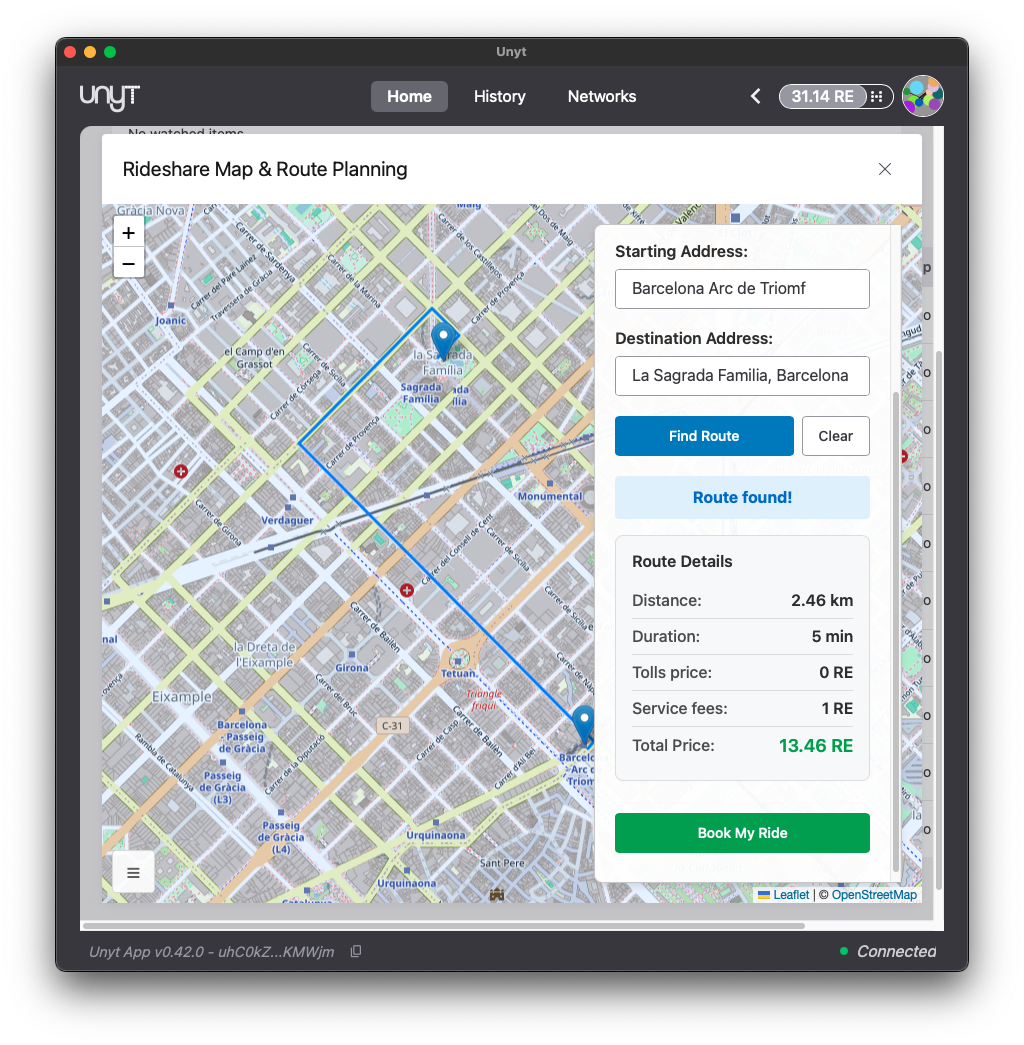#Rideshare
Barcelona. You open your rideshare app and get picked up seamlessly. Next week in Berlin, the same app works perfectly, but it's run by a completely different local organization. No Uber taking 25-30% of every fare. Just a €1 infrastructure fee per ride.
This is what becomes possible when communities share software without surrendering control.
The Platform Trap
The pattern is familiar: platforms start great, then squeeze everyone once they have market lock-in. Drivers earn less, riders pay more, and 25-30% of every transaction feeds the corporate machine. A small company or local driver’s co-op can't compete alone, but what if they didn't have to?

The Demo: Shared Infrastructure, Local Control
This week we're releasing a proof-of-concept for rideshare accounting built on Unyt – with a simple map screen for booking a simulated ride. Three cities (Barcelona, Berlin, Amsterdam), three independent organizations, one shared transaction engine.
Riders select their region, enter addresses, and pay in Ride Euros (RE). Simple.
Drivers accept rides, complete trips, get paid directly minus a 1 RE fee. No waiting, no mysterious deductions, no changing of pay or performance metrics after you’ve locked yourself into a new car lease.
How It Works: Three Building Blocks
Service Units measure what matters: kilometers and minutes in this demo. Each region can weight these differently or add factors like pooling discounts or demand pricing. The infrastructure enables your economic model; it doesn't dictate it.
Payment Units provide the payment currency. Service units convert to Ride Euros through configurable price sheets. Barcelona can price rides differently than Berlin, or offer additional services like tour-guide rides. That's not a bug, it's the point.
Service Networks give each region autonomy. Barcelona's co-op runs their network, Berlin runs theirs, but they share the same software foundation. No central authority controlling local operations.
Why This Wins
Cost Sharing Without Control Surrender: Split development costs, keep local autonomy.
Anti-Enshittification: Communities control their own agreements. No corporate parent can squeeze harder once you're locked in.
Economics That Work: €1 fixed fee vs. 25-30% platform cut. That means more income for drivers and cheaper rates for riders.
True Peer-to-Peer: Money flows from rider to driver, not through a corporate intermediary extracting rent.
Non-Custodial: Everyone controls their own units. No central authority holding or freezing funds.
Beyond Rideshares
The same template works for food delivery, vacation rentals, task marketplaces -- any service where local providers want to escape platform extraction. Multiple organizations, shared infrastructure, local control.
The Bigger Picture
This is multi-unit, multi-organization accounting in action. When communities can share costs without surrendering sovereignty, the entire dynamic shifts. Value stays local. Decisions stay local. Innovation happens at the edges.
Platform extraction isn't inevitable. We're building the infrastructure that makes cooperative alternatives viable at scale.
Check out the demo video or download and try it yourself.
This is part of our bi-weekly release cadence through 2025. What could your community build with these tools?



